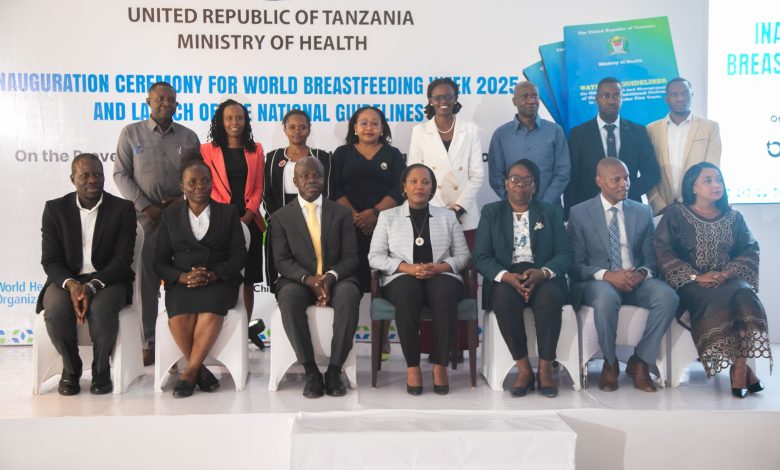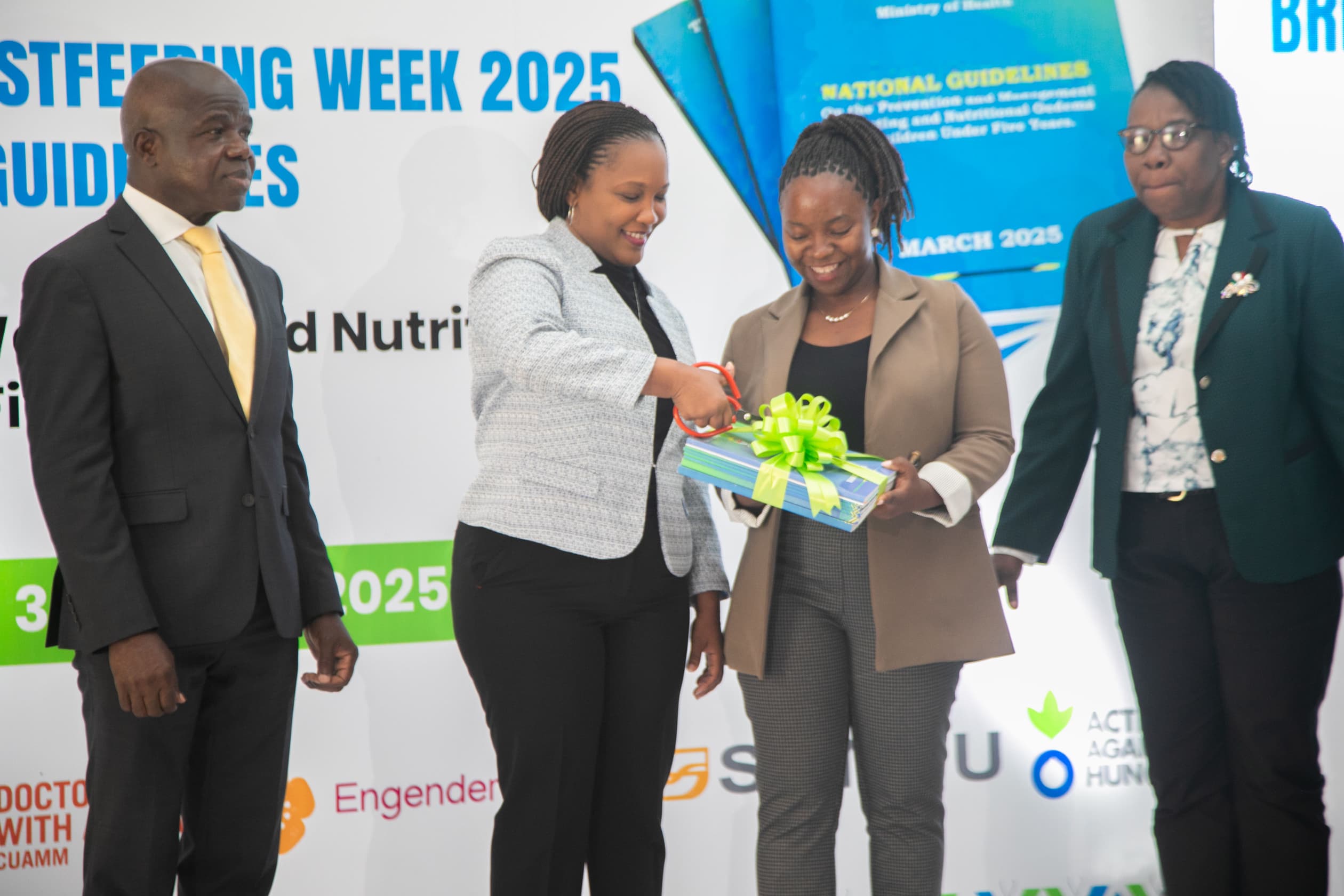Tanzania sees success in breastfeeding with an effective nutrition campaign

DAR ES SALAAM: BREASTFEEDING rates in Tanzania continue to improve, with the percentage of children exclusively breastfed increasing from 58 percent in 2018 to 64percent in 2022.
Additionally, the number of newborns breastfed within the first hour of birth rose from 58percent in 2018 to 70 percent in 2022—a practice considered vital for the child’s health and development.
These statistics were released today, July 30, 2025, in Dar es Salaam by the Permanent Secretary of the Ministry of Health, Dr Seif Shekalaghe, during the launch of World Breastfeeding Week.
At the event, a new National Guideline for the Prevention and Treatment of Wasting and Nutritional Oedema was also unveiled.
Representing Dr Shekalaghe, the Deputy Permanent Secretary from the President’s Office – Regional Administration and Local Government (Health), Prof Tumaini Nagu, acknowledged the progress made but noted ongoing challenges in sustained breastfeeding.
“Currently, only 35percent of children aged 20 to 24 months continue to breastfeed, which poses a risk to their nutritional needs,” Prof Nagu said.

She added that the lack of exclusive breastfeeding is among the leading causes of malnutrition and wasting in children under five years old. According to 2022 data from the World Health Organization (WHO), approximately 45 million children globally, 6.8 percent, are affected by wasting, with 2.1percent suffering from severe wasting.
However, Prof Nagu noted that Tanzania has made significant progress. The national rate of wasting among children under five has dropped to 3 percent , below the WHO threshold of 5 percent . This translates to around 620,000 children, according to the 2022 National Population and Housing Census.
This improvement has been supported by the Integrated Management of Acute Malnutrition (IMAM 2018) Guidelines, which continue to be updated based on scientific evidence and the country’s context.
Zachary Imeje, Country Director for Action Against Hunger Tanzania, praised the launch of the 2025 updated guidelines, calling it a crucial step in shifting societal attitudes towards breastfeeding.
ALSO READ: Dodoma cut maternal, neonatal mortality rates
“We believe this new guideline is a national commitment to reach at-risk children with timely and quality care. Breastfeeding is every child’s right and a shared responsibility of the whole community,” said Imeje.

The observance of World Breastfeeding Week is expected to renew efforts to combat malnutrition and ensure all children receive proper nutrition from the very first day of life.
Mothers are also being urged not to abandon breastfeeding, as doing so can lead to severe wasting in children who are not breastfed adequately.






